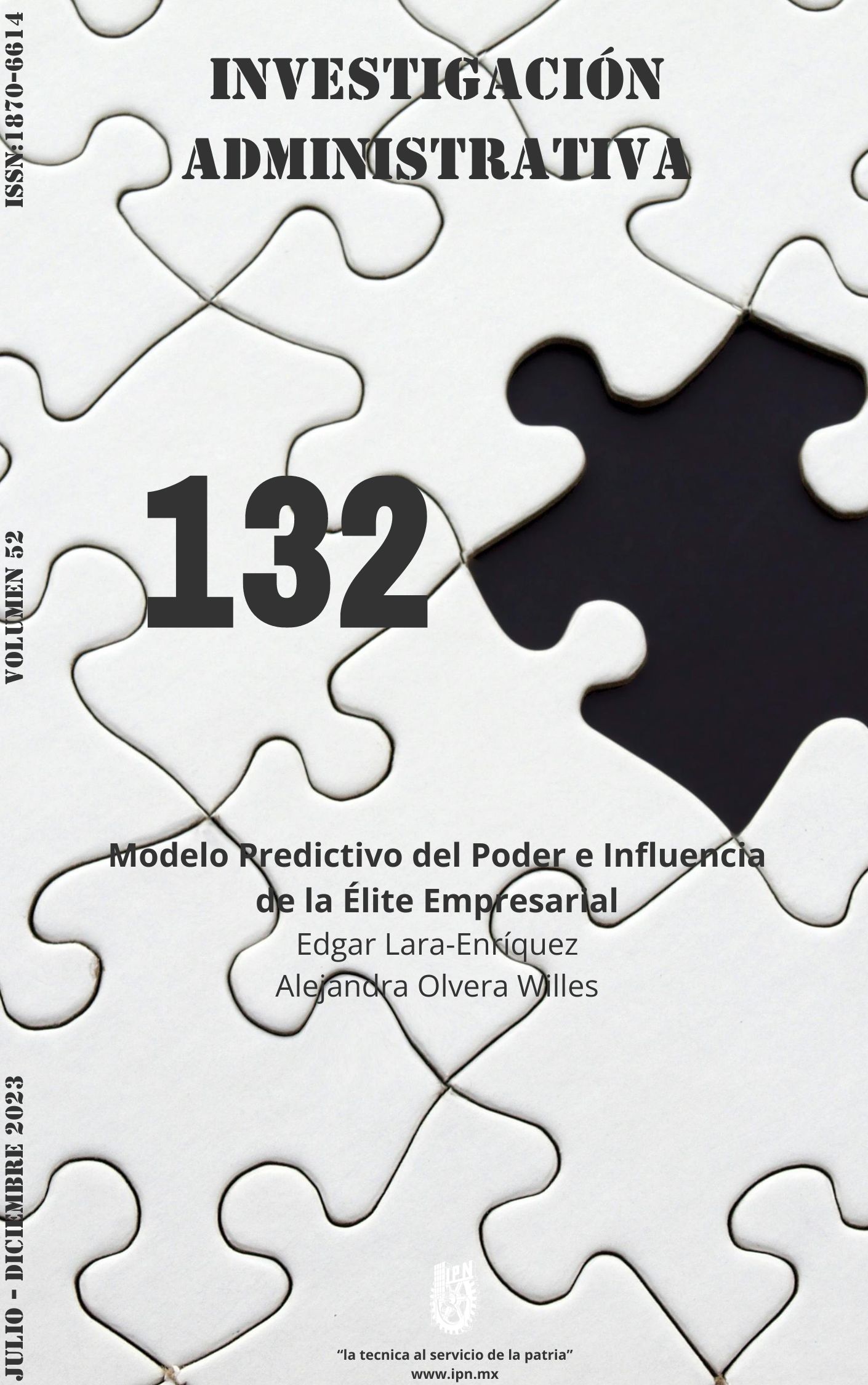Predictive Model of the Power and Influence of the Business Elite.
Main Article Content
Abstract
The study of organizations has generated a diverse typology of currents and approaches. In the case of business organizations, the exercise of power is a counterweight condition to the actions of the state and they will seek to generate influence to maximize their income. The objective of the study is to identify the dimensions that allow evaluating the impact of the power and influence of business leaders in public policy. The method used were multiple linear regressions in the business sector. The originality lies in the establishment of a quantitative model to measure power. The limitations are that business leaders are analyzed. Statistically significant relationships were found: economic development (R = .510, p < 0.000), power and influence (R = .406, p <0.002); Institutional Strengthening (R = .316, p<0.020); governance (R = .428, p<0.01). We can determine that competencies are associated with the exercise of power and influence on economic development and governance. The findings determine that power and influence and competencies are causal-predictive variables of economic development and governance. This means that the greater the skills of business leaders, the greater the power and influence on economic development and governance.
Article Details

This work is licensed under a Creative Commons Attribution-NonCommercial 4.0 International License.

